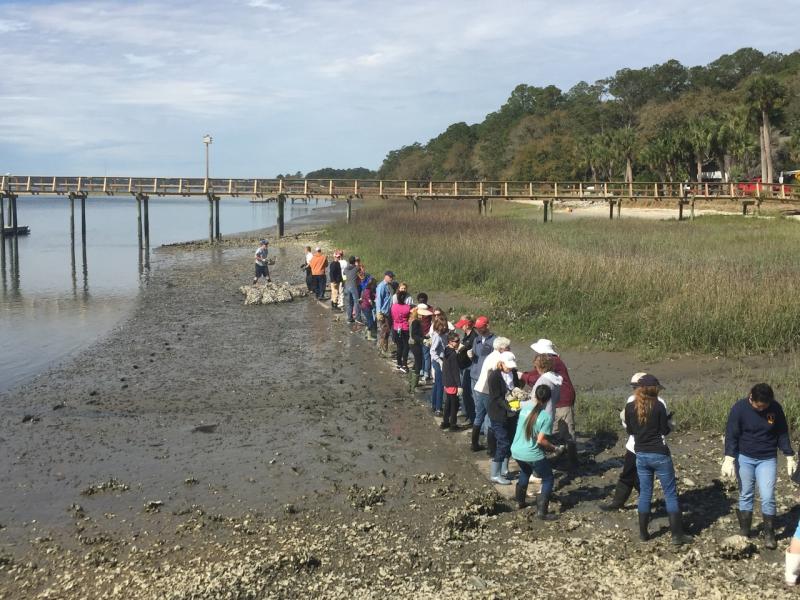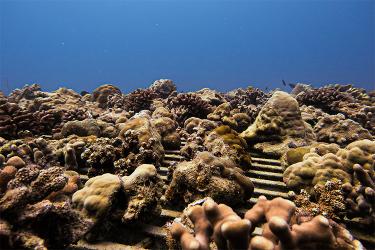NOAA is announcing the funding of three projects that will restore coastal habitat and enhance recreational fisheries engagement in coastal Fish Habitat Partnerships. Saltwater recreational fishing is an American pastime and important economic driver, and anglers make critical contributions to the conservation of fish habitat nationwide. The projects will actively engage anglers in habitat restoration efforts that will benefit coastal communities and economies.
In the Southeast Aquatic Resources Partnership, the South Carolina Department of Natural Resources (SCDNR) will work with anglers from Coastal Conservation Association chapters to restore and monitor oyster reefs in four coastal counties over two years. SCDNR will rely on angler expertise to identify coastal recreational fishing areas that are ecologically suited to and would most benefit from restored oyster reefs. Oyster shells will be collected from the local restaurant industry as part of SCDNR’s oyster shell recycling program, and will be used to construct oyster reefs. The project will provide habitat for several recreationally important species through the Southeast region including, red and black drum, flounder, gag grouper, bluefish, blue crabs, oysters, and shrimp.
In the Atlantic Coastal Fish Habitat Partnership, the North Carolina Coastal Federation will work with angler volunteers to restore oyster reef and salt marsh habitat in Stump Sound. Oyster reef lost to dredging, shoreline hardening, and high harvest pressure will be restored through the creation of new reef habitat; and eroding fringing salt marsh will be restored through smooth cordgrass plantings and protected by the new reef habitat. In partnership with the North Carolina Division of Marine Fisheries, the project will also translate recreational fishing publications and regulations into Spanish to provide language access for the nearby community. The restored salt marsh and oyster reef will provide habitat for red drum, sheepshead, spotted seatrout, weakfish, spot, Atlantic croaker, and shrimp, and the project will better engage the local Spanish-speaking community through translation of materials.

The projects are funded through NOAA Fisheries’ Habitat Protection Division, within the Office of Habitat Conservation, and Recreational Fishing Initiative in partnership with the Atlantic States Marine Fisheries Commission and Pacific States Marine Fisheries Commission. They were selected based on their active engagement of recreational fishing partners in habitat protection or restoration efforts, and the potential to build long-term relationships with those partners.




